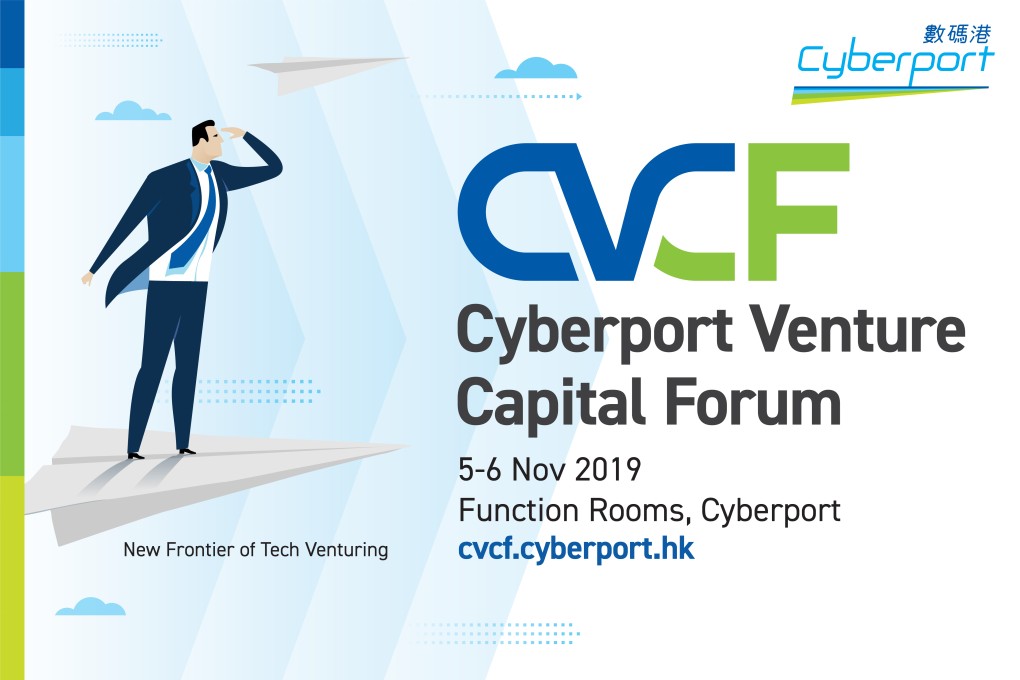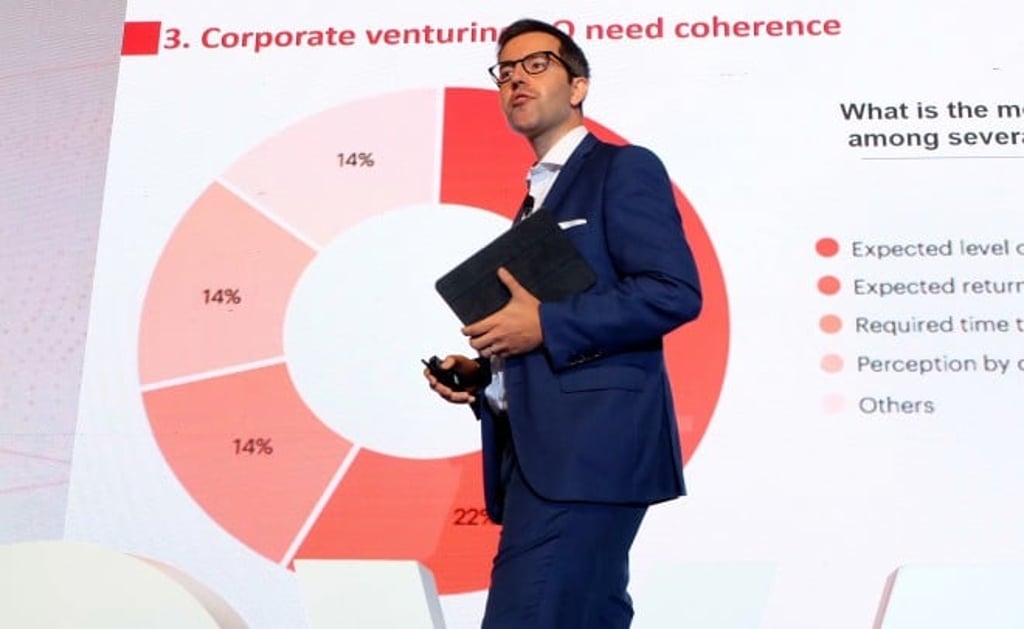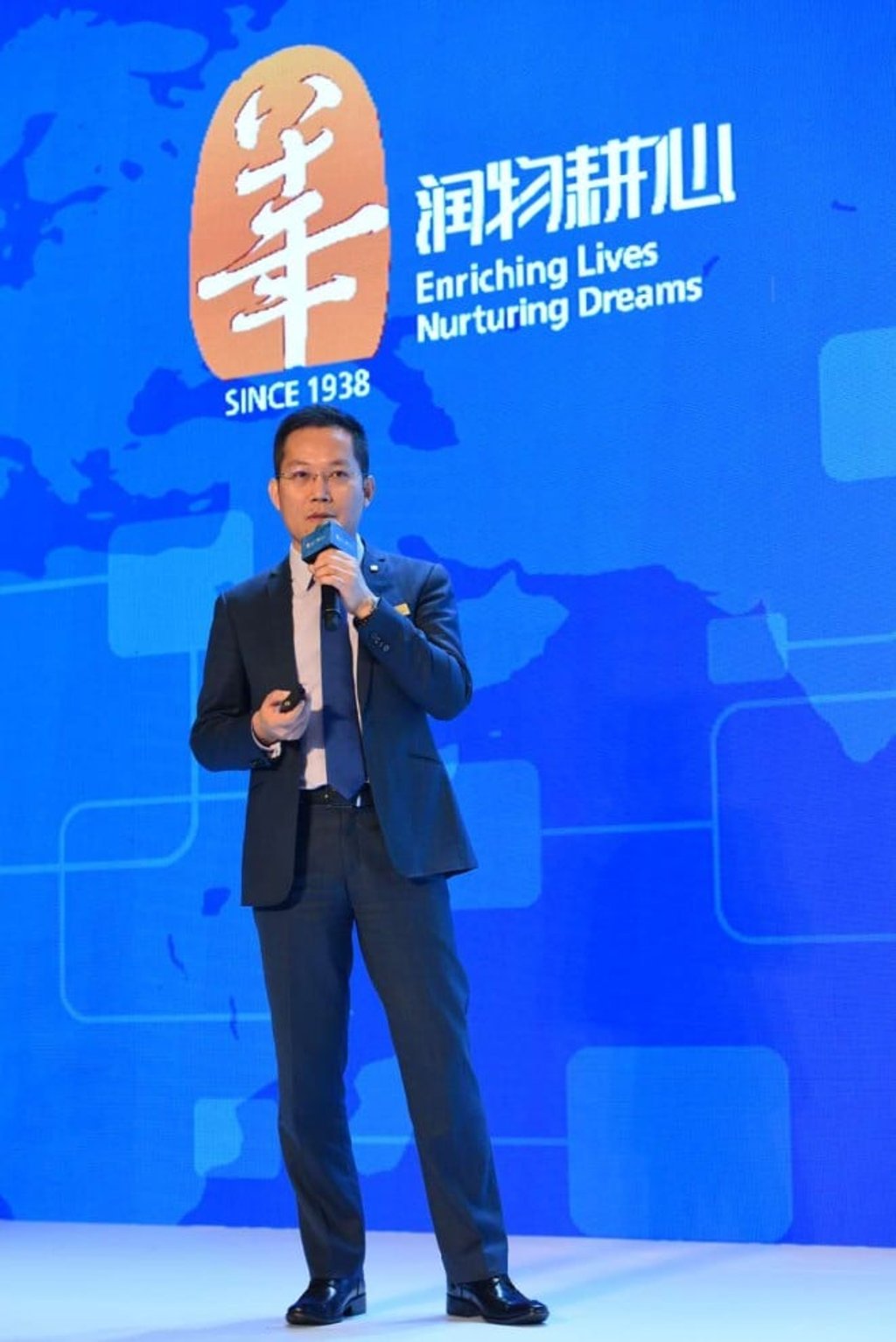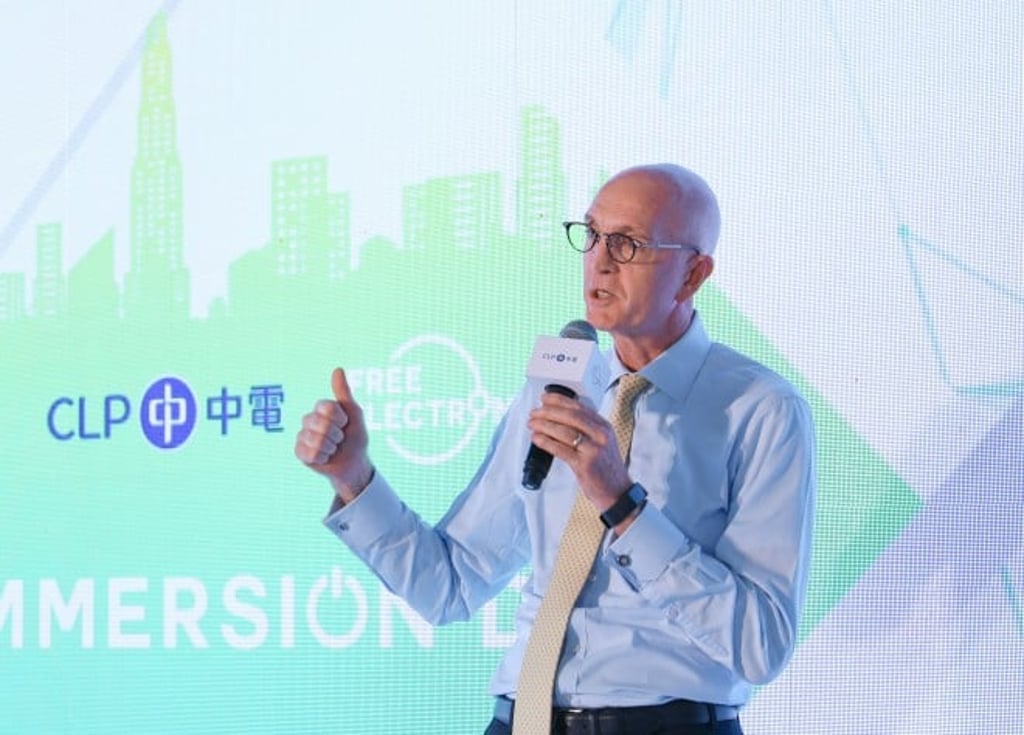Meet the tech leaders and investors at leading venture capital forum in Hong Kong
Early next month Cyberport Venture Capital Forum (CVCF) returns to the city. Anyone who is serious about the latest tech investment trends and is open to being inspired by thought leaders in the ever-changing tech world, must not miss this forum.

[Sponsored Article]
This is the time of transformation and disruption across industries, and it is as well the case for venture capital and other investment businesses. At the current time of challenging economic environment, plus the implications of ever-changing geopolitical issues, there are signs that significant venture capital firms become less active in funding start-ups, preferring to channel their resources towards different stages of venturing. Against this backdrop, what are the implications for start-up venturing and beyond? And who is going to fill the venturing voids as such?
As with last year's conference, this year’s CVCF could hold the key for answers. The much anticipated Forum will be attended by corporate and institutional investor icons, industry leaders, tech corporations, start-ups, intermediaries, academia and many others.
The attendees will be inspired by a diverse range of topics including the rising corporate venture and strategic investing, dynamic investment markets along the Belt & Road region, shifting capital flow amidst the geopolitical volatility, disruptive funding platforms and more.
According to a recent CB Insights Research Report, the global disclosed corporate venture capital deals and funding increased from 1,029 and US$10.6 billion in 2013 to 2,740 and US$53 billion in 2018.
If this upward percentage of the sub-sector is a reliable indicator, the importance of corporate venturing looks to be on the rise, and there are good reasons for the trend. Scheduled to speak at the CVCF is Josemaria Siota, Director of Research, at the Barcelona-based IESE Business School. The leading research professional comes with substantial intelligence with research on open innovation, corporate venturing and technology transfer. As designated Expert on Corporate Venturing at the European Commission and at the World Economic Forum, he works around the world with Chief Innovation Officers and top-tier academics, making him one of the world's most influential and sought-after speakers on the subject.

As such, the forum's audience will have a chance to discover first-hand the strategies and lessons learnt from various highly successful corporate venturing cases.
The main reason for the increase in the number of collaborations between corporates and start-ups is the speed of change, as seen by some 50 per cent of the Fortune 500 companies having either disappeared or changed dramatically since 2000, driving corporations to keep up in the race of innovation. Another reason is the complementary nature of business collaborations. On the one hand, established corporations are usually slow organisations, with inflexible processes and a high risk aversion, achieving slow-paced growth. On the other hand, start-ups sometimes face difficulties accessing new markets, with tight budgets and resources, and a narrow visibility. But the weakness of some are the strengths of the others where corporate and start-up teams can together speed up processes, redesign business models, and create high-growth opportunities in various markets.
How companies choose their search fields is heavily influenced by their innovation strategy, which is significantly related to companies’ industry with different innovation speeds and industry openness. Siota notes, adding: "In many cases, technology sectors have focused on using their corporate venturing arms for innovating their core businesses, other sectors such as automotive and financial services are more concentrated on adjacencies. Other industries such as media, consumer goods and telecommunications, are focused on both."
Siota will first deliver a speech at the CVCF titled The 7 Myths of Corporate Venturing, before assuming his role as a moderator in a panel discussion focusing on corporate ventures, putting together a panel of seasoned venture capitalists and chief investment officers in long-established corporations both from here in Hong Kong and abroad.
The forum's attendees will likely find the development of the China Resources Group (CR Group) fascinating. As one of Hong Kong and Mainland China’s leading and most diversified conglomerates, the Group has relied on corporate venturing, as much as organic growth and mergers and acquisitions to contribute to its current position; this after around 80 years since its inception in Hong Kong.
On new ventures, Dr Tony Zhang, Co-Chief Investment Officer of China Resources Capital Management, a group subsidiary company, says, “Emphasis has always been placed on strategic value instead of financial motivation; and we operate as market-driven investment institutions, while working closely with the parent company."

Corporate venture capital investments play an increasingly significant role in the group. Zhang says the group’s investment arm constantly seeks collaboration between the parent company and the group's investment portfolio companies to provide an access to emerging technologies including artificial intelligence (AI), financial technology and biotechnology, promote the upgrade of the group's existing industries and products, assist in the group’s corporate transformation, as well as bring greater value to its customers.
Also a home-grown corporation, CLP has developed into a multinational energy company with investments in digital energy companies including AutoGrid in Silicon Valley, Synvertec in Israel and En-trak for smart building tenant management based in Hong Kong.
Austin R. Bryan, Senior Director - Innovation and Ventures of CLP Holdings sees that avoiding or deferring engagement with the digital disruption will cost companies their shareholder value and market share ultimately, and resulting in the risk of being irrelevant and commoditised. By speeding up innovation investment, CLP sees a number of customer experience areas especially in the smart building and sustainability space generating great value. "We now help real estate companies, building owners, facility managers and retailers, to have visibility and control over energy utilisation and consumption anywhere and all the time." he reveals.

The fact that CLP enjoys almost a protected status in the Hong Kong market does not stop it from testing, learning and deploying world-class digital technologies; both to improve operation efficiencies and to capture new value pools being created through digital customer insights and information transparency.
Bryan adds, "Digital energy companies can aggregate load, understand customer demand, and predict activities and behaviour with great insights and accuracy. However, coupling this with our deep domain knowledge in the energy sector, makes the product or service far more compelling which is why companies are excited to partner with us."
The CVCF has proved to be an interesting platform connecting potential investors from around the world, with start-ups and entrepreneurs. Set to be sharing with attendees the fund's philosophy and investment focus for the first time is Switzerland-based PM Equity Partner (PMEP), Philip Morris International's (PMI) corporate venture capital fund set up in 2015.
Jason Gao, Investment Manager Venture Capital of PMI explains that, notwithstanding the fund's relative youth and European roots, PMEP has started making some progress in building its Asian presence. Notes Gao: "In addition to adding people with Asian experience to our team, we have increased the level of our engagement in the region, such as starting relationships and discussions with local start-up networks, investors and other involved parties." To tap the young entrepreneurial spirit in Asia, PM Equity Partner will be co-hosting the PMI Open Innovation Challenge in Hong Kong, where the participating start-ups from the region will have the opportunity to start a business relationship with PMI and be considered for investment by PMEP.

As for the sectors that may prove most interesting to the fund manager, Gao sees ample opportunities across the consumption value chain, such as new retail, consumer engagement, logistics and delivery, as well as Fintech for consumer finance and payment. Also, technology solutions based on big data, as much as AI and robotics, can also be an emerging category in certain Asian markets.
The two-day event comprises the main forum on Tuesday, November 5, plus a start-up workshop on Wednesday. In addition to world-class panel discussions and speeches, the forum also features an Innovator Showcase and Founder Stage presenting promising start-up projects, and the exclusive Investor Matching platform will facilitate investors and start-ups for one-on-one meetings based on tech sectors and investment appetite.
Therefore, start-ups with interesting solutions in the mentioned areas, take note—as this year's CVCF could be a breakthrough in raising much needed capital from some of the world's most forward-thinking venture capitalists. While for investors, the CVCF brings together tech start-ups and innovations, with added benefit of meeting the key people behind innovative solutions to a wide range of new economy endeavours at the dynamic and conveniently located Cyberport community.